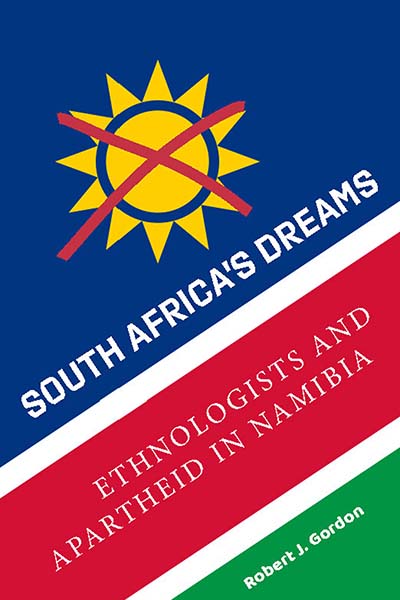“Gordon’s treatise is an overdue and valuable contribution to the history of apartheid – a history of moral, academic and intellectual dissonance which deserves to be read widely in Namibia. What looks like another elaboration on a dry academic topic is presented by Gordon as an exciting read, full of brilliant poignancy and deconstruction of an unsavoury aspect of the German-Namibian-South African (hi)story.” • The Namibian
“Overall, this book presents useful insight into the position of ethnologists in the making of ‘South Africa’s dream’, especially in understanding their role when the South African colonial government tested Apartheid ideas in the SWA colony before implementing them in the metropoles of South Africa…this book will be very useful to historians and anthropologists with an interest in the role of ethnologists in the making of Namibia’s colonial past, and can provide the foundations for further research.” • Journal of Namibian Studies
“Reading Robert Gordon is always a pleasure. He has a way of getting behind the opaque academic curtain, making fun of it and, in the process, articulating keen novel insights.” • Journal of Southern African Studies
“Having lived through much of the time discussed in this book in South Africa and being aware of the political and academic implications of white politics and of the politics of anthropology, I found this book highly engaging, confrontational of white conservatism and racism and justly devastating of expertise gone wrong”. • C. S. van der Waal, Stellenbosch University
In the early sixties, South Africa’s colonial policies in Namibia served as a testing ground for many key features of its repressive ‘Grand Apartheid’ infrastructure, including strategies for countering anti-apartheid resistance. Exposing the role that anthropologists played, this book analyses how the knowledge used to justify and implement apartheid was created. Understanding these practices and the ways in which South Africa’s experiences in Namibia influenced later policy at home is also critically evaluated, as is the matter of adjudicating the many South African anthropologists who supported the regime.
Robert J. Gordon is Emeritus Professor at the University of Vermont and a Research Fellow at the University of the Free State. His books include Going Abroad: Travelling like an Anthropologist (Routledge, 2010) and most recently The Enigma of Max Gluckman: The Ethnographic Life of ‘Luckyman’ in Africa (Nebraska, 2018) which was a Choice Outstanding Academic Title in 2019.
LC: DT1556 .G67 2021
BISAC: SOC070000 SOCIAL SCIENCE/Race & Ethnic Relations; SOC002010 SOCIAL SCIENCE/Anthropology/Cultural & Social; HIS001040 HISTORY/Africa/South/General


